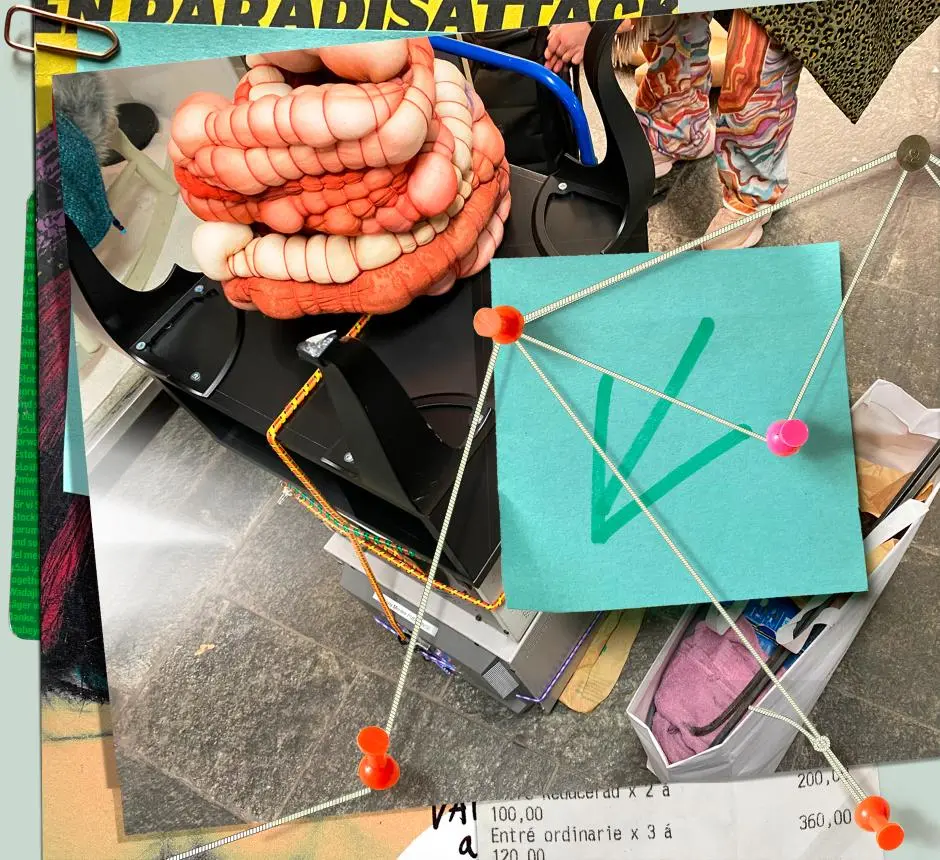Government inquiries and collaboration
How we work to improve artists’ economic and social conditions.
- Start Page
- Artists’ Economic and Social Conditions
- Government inquiries and collaboration
© Helena Shutrick

The Swedish Arts Grants Committee analyses and provides insights into the economic and social conditions of artists. We also monitor how the social security system is designed and applied to artists’ needs.
A thriving cultural sector depends on artists having fair and sustainable working conditions. Our mission to support artists’ economic and social conditions extends across the country and includes all artistic disciplines.
Participation in government inquiries
The Swedish Arts Grants Committee regularly publishes reports, memos and handbooks on artists’ economic and social conditions. Key findings are usually included in our annual report. Our target audiences include the government, relevant authorities, industry organisations, artists and cultural sector professionals. We sometimes serve as expert advisors in select government inquiries.
Maintaining statistics
To improve artists’ working conditions, it is crucial to track changes in their income, pensions and available funding over time. Equally important is understanding how artists’ earnings compare to those in the broader cultural and creative sectors.
To ensure ongoing analysis of the economic and social conditions of artists as a group, we collaborate with the Agency for Cultural Policy Analysis.
Referrals from the government
A key responsibility of the Swedish Arts Grants Committee is responding to government referrals. Many of these address issues that can impact artists’ professional conditions or the broader cultural sector, often extending beyond traditional cultural policy.
Other collaboration
The Swedish Arts Grants Committee is tasked with collaborating with actors from different sectors.
Interaction between policy areas
Many factors that shape artist’s working conditions have a bearing on and are governed by policy areas beyond cultural policy. To address these, we collaborate with government agencies from various sectors.
- Social security and taxation: We work closely with agencies like the Swedish Social Insurance Agency and Swedish Tax Agency to exchange information on policies and regulations that impact artists’ professional practices.
- Entrepreneurship: On matters related to artists as solo entrepreneurs, we collaborate with Vinnova, the Swedish Agency for Economic and Regional Growth, and verksamt.se (an interagency portal that supports businesses).
- Copyright: To strengthen knowledge of copyright, we collaborate with the Swedish Intellectual Property Office.
- Cultural labour market: We are also part of the Council for the Cultural Labour Market, led by the Swedish Public Employment Service for Culture and Media.
Regional collaboration
The Swedish Arts Grants Committee collaborates and engages in dialogue with regions, municipalities and local organisations to exchange knowledge on artists’ working conditions at both national and regional levels. We actively participate in regional gatherings and invite regional representatives to our own events.
As a member of the Council for Cultural Cooperation, we help coordinate national cultural policy interests within the cultural cooperation model. In this role, we also monitor artistic policy perspectives and the overall conditions for working artists across the country and within individual regions.
Additionally, we support various initiatives nationwide, including international collaborative projects and artist residencies. These projects are carried out in partnership with regions, municipalities, public institutions, artist-run organisations and others.
Collaboration with artist organisations
Artist organisations and the Swedish Joint Committee for Artistic and Literary Professionals (KLYS) are key dialogue partners for the Swedish Arts Grants Committee. Professional and copyright organisations are often included in expert councils that we assemble for various government inquiries.
International collaboration
The Swedish Arts Grants Committee follows international arts policy developments through organisations such as the EU institutions, OECD and UNESCO. We also engage in knowledge exchange and share experiences on artists’ working conditions through various global networks.
Collaborative partner websites containing information in English (all open in a new window):

